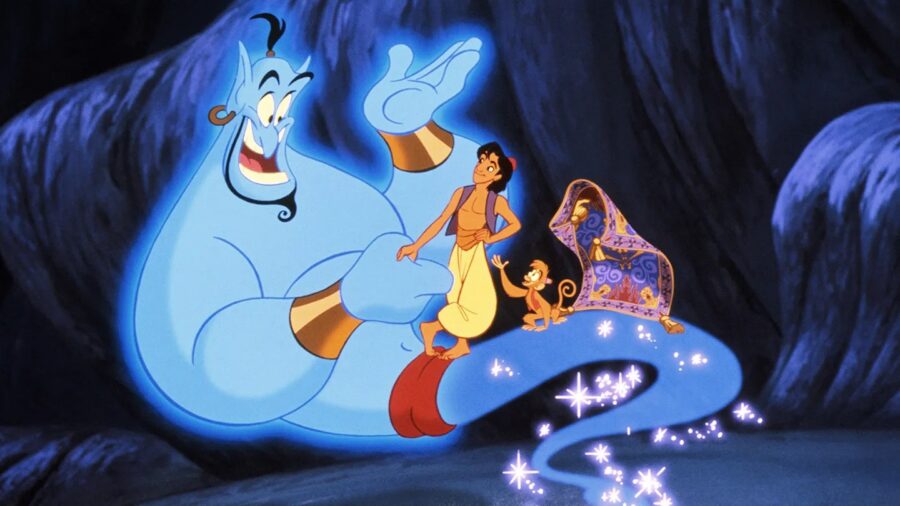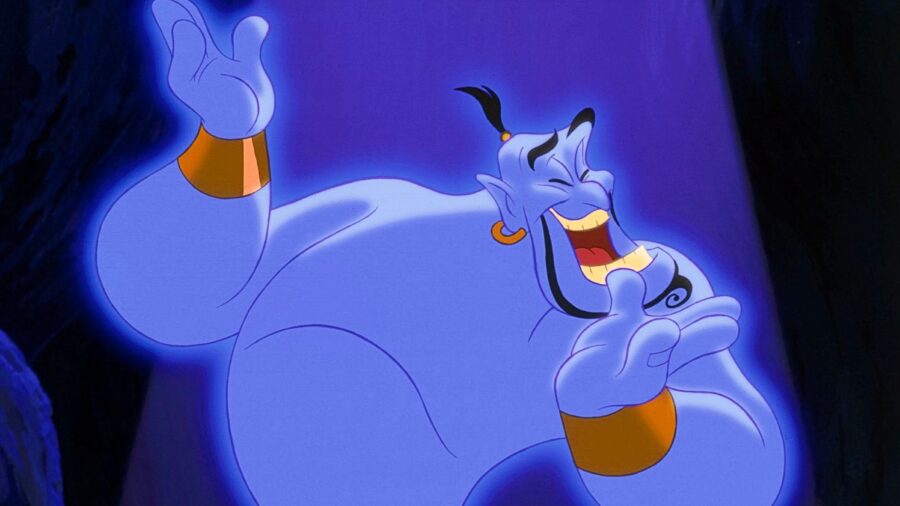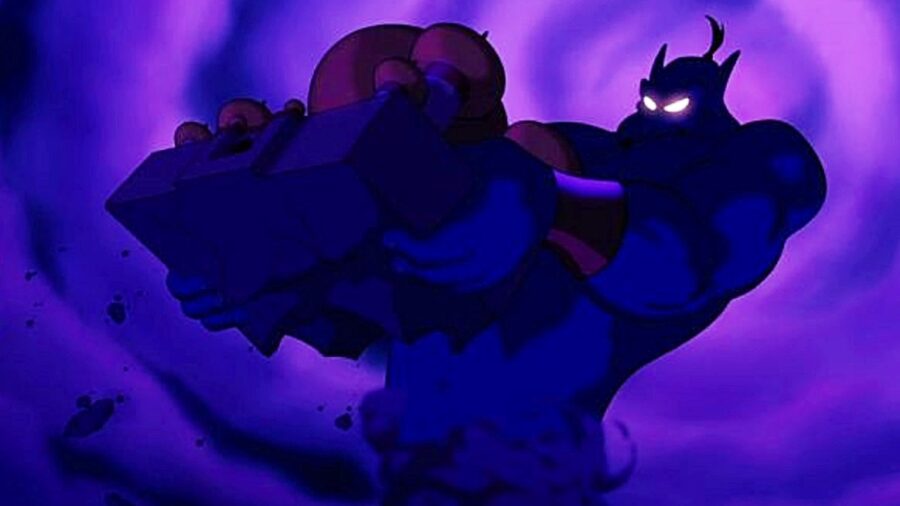Robin Williams’ Got Paid Almost Nothing For His Best Movie

Robin Williams was one of the most successful and beloved entertainers of the 20th century, equally at home performing stand-up comedy for sold-out crowds at Madison Square Garden, winning awards for intense dramas like Good Will Hunting, and appearing in odd, emotional indie fare like The Fisher King. His single best and most defining movie is unquestionably the massively successful Disney animated film Aladdin, but ironically, he got paid as little as an actor possibly could for it. We’ll explain.
Aladdin was released in 1992, swiftly becoming the highest-grossing animated film of all time before being toppled by another Disney picture two years later, The Lion King. This particular Robin Williams movie was also the highest-grossing film of any kind that year, racking up a staggering $504 million globally. For all of that success, at the very zenith of Disney’s modern artistic and commercial peak, Robin Williams was paid a mere $75,000 for the movie.
That number was the Screen Actors Guild minimum pay (known as scale) at the time, so essentially the lowest amount that a studio could pay an actor under union agreements. At the time, Robin Williams commanded an impressive $8 million per movie at the time (equivalent to $16.5 in 2022), so what gives? Why would a man who was one of the biggest stars on television and film bargain so poorly?

Two words: misplaced gratitude. A few years earlier, Robin Williams’ status as a movie star had been fully cemented by 1987’s Good Morning, Vietnam, which had been produced by Touchstone Pictures. That company was the label under which the Walt Disney Company produced movies that did not slot easily into Disney’s family-friendly image, like Nicolas Cage’s Con Air, Bruce Willis’ Armageddon, and Will Smith’s Enemy of the State. Thus, Robin Williams apparently felt a sense of thankfulness to Disney for boosting his career when he was not as well known for his movie career.
However, he had some conditions. Robin Williams requested that his name and image not be used for marketing the movie, down to specifically requiring that the Genie take up no more than 25% of the artwork on the film poster. In large part, this was because he had his own starring movie about to be released, the Barry Sonnenfeld fantasy comedy Toys. If you do not immediately recognize that movie, it is because it was absolutely swamped by Aladdin, which exploded into theaters almost exactly one month before Toys.
Aladdin is rightfully considered one of the highlights of the Disney Renaissance, the period of the 1990s in which the company revitalized itself under the stewardship of figures like CEO Michael Eisner, lyricist/writer Howard Ashman, and composer Alan Menken. Aladdin was praised for its pioneering use of CGI animation, incredibly infectious music, and, most of all, Robin Williams wildly riffing yet surprisingly nuanced role as the Genie.
In the Genie, Robin Williams finally found a movie role that allowed him to unleash the manic adlibs and parade of characters that characterized his standup work. Equally as significant, Aladdin saw Robin Williams able to take on more wistful, melancholy moments than he had been able to. While the title of Aladdin might refer to the orphan scamp voiced by Scott Weinger, there is no question that the film belongs to Robin Williams.
Not that he saw many returns from it. Despite the company’s earlier promises (which seem to have been some kind of handshake deal), Disney did not hold back on marketing Aladdin as a Robin Williams movie, slapping the Genie’s image towering over the other characters on the poster, and merchandising every possible item that could be associated with the character. For whatever legal reason, the company did not have to pay Robin Williams extra for this and it certainly did not.

Reportedly, Robin Williams was extremely upset that his own movie tanked, which can partially be blamed on Aladdin, and that Disney reneged on the very generous deal he had made with the company. He would refuse to return to the role in the sequel a few years later and would not work with Disney again for years. If the company had been a little bit less eager to go for the marketing in the moment, who knows if it could have gotten an even better Robin Williams movie in those glory years?











